Decoding Metro Atlanta: A Guide To Zip Codes And Their Significance
Decoding Metro Atlanta: A Guide to Zip Codes and Their Significance
Related Articles: Decoding Metro Atlanta: A Guide to Zip Codes and Their Significance
Introduction
With enthusiasm, let’s navigate through the intriguing topic related to Decoding Metro Atlanta: A Guide to Zip Codes and Their Significance. Let’s weave interesting information and offer fresh perspectives to the readers.
Table of Content
Decoding Metro Atlanta: A Guide to Zip Codes and Their Significance
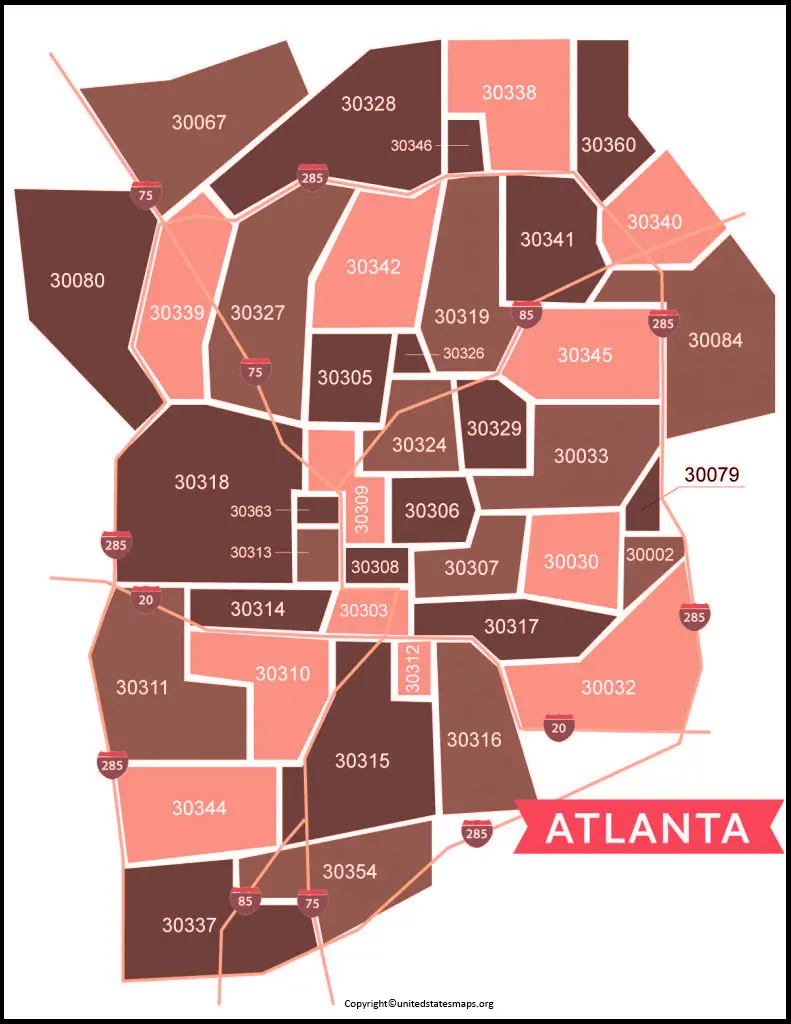
The sprawling metropolitan area of Atlanta, Georgia, is a vibrant hub of commerce, culture, and history. Its complex urban landscape is neatly organized into distinct neighborhoods and districts, each with its own unique character. Understanding the geography of this region, particularly through the lens of zip codes, offers valuable insights into its diverse demographics, economic activity, and social fabric.
Navigating the Grid: A Visual Guide to Metro Atlanta Zip Codes
A map of Metro Atlanta zip codes is a powerful tool for navigating this dynamic region. It provides a visual representation of the city’s intricate spatial organization, highlighting the boundaries of different neighborhoods and districts. Each zip code represents a distinct geographic area, typically encompassing several streets and blocks.
Beyond Numbers: Unpacking the Significance of Zip Codes
While seemingly simple numerical identifiers, Metro Atlanta zip codes hold a wealth of information beyond their postal function. They serve as valuable markers for:
-
Demographic Insights: Analyzing zip codes reveals the demographic makeup of various neighborhoods. Data related to age, income, ethnicity, education levels, and household composition can be associated with specific zip codes, providing a nuanced understanding of population characteristics.
-
Economic Activity: Zip codes are often used to delineate business districts and commercial hubs. Analyzing economic data tied to specific zip codes can reveal patterns of employment, industry concentration, and overall economic health.
-
Community Dynamics: Zip codes can serve as identifiers for distinct communities within Metro Atlanta. They offer a framework for understanding the social fabric of the city, highlighting areas with shared interests, cultural identities, and local traditions.
-
Real Estate and Housing Market: Zip codes are crucial for understanding the real estate landscape of Metro Atlanta. They are used to categorize neighborhoods based on property values, housing types, and market trends.
-
Public Services and Infrastructure: Zip codes play a role in the distribution of public services, including education, healthcare, transportation, and public safety. Understanding the geographic distribution of these services is essential for planning and resource allocation.
A Deep Dive into Metro Atlanta’s Zip Code Landscape
The Metro Atlanta region encompasses over 100 distinct zip codes, each with its unique story. Here’s a glimpse into some of the prominent zip codes and their associated characteristics:
-
Downtown Atlanta (30303): This central business district is a bustling hub of commerce and finance, home to towering skyscrapers, major corporations, and cultural institutions.
-
Buckhead (30324, 30326): Known for its upscale shopping, dining, and entertainment options, Buckhead is a prestigious residential area with a thriving nightlife scene.
-
Midtown Atlanta (30309, 30313): This vibrant neighborhood is a mix of historic charm and modern amenities, boasting a diverse culinary scene, art galleries, and entertainment venues.
-
Sandy Springs (30328, 30342): A suburban oasis with a strong sense of community, Sandy Springs offers a blend of residential neighborhoods, parks, and commercial centers.
-
Alpharetta (30004, 30005): A thriving suburban city known for its tech industry, Alpharetta offers a balance of business and residential life with a strong emphasis on community involvement.
-
Roswell (30075, 30076): A historic city with a charming downtown and picturesque neighborhoods, Roswell offers a peaceful suburban lifestyle with a focus on community and history.
FAQs About Metro Atlanta Zip Codes
Q: How are zip codes assigned in Metro Atlanta?
A: Zip codes are assigned by the United States Postal Service (USPS) based on geographic boundaries and population density. The USPS aims to optimize mail delivery efficiency by grouping addresses into manageable zones.
Q: Are zip codes static or can they change?
A: While zip codes are generally stable, they can be adjusted over time due to population growth, urban development, or changes in mail delivery patterns.
Q: How can I find the zip code for a specific address in Metro Atlanta?
A: You can easily find the zip code for any address in Metro Atlanta using online tools like the USPS website or various mapping services.
Tips for Using Metro Atlanta Zip Codes
-
Utilize online mapping tools: Interactive maps with zip code overlays can help you visualize the geographic distribution of neighborhoods and districts.
-
Explore demographic data: Websites like the U.S. Census Bureau provide valuable demographic data associated with specific zip codes.
-
Consider zip codes when searching for housing: Knowing the zip code can help you narrow down your search for properties based on desired neighborhoods and market trends.
-
Use zip codes for local business searches: Many online directories and search engines allow you to filter results based on zip codes, helping you find businesses in specific neighborhoods.
Conclusion: The Power of Zip Codes in Understanding Metro Atlanta
The map of Metro Atlanta zip codes is a valuable tool for navigating the city’s complex urban landscape. By understanding the significance of these numerical identifiers, we gain insights into the diverse demographics, economic activity, and social fabric of this dynamic region. Whether you are a resident, visitor, or business owner, a basic understanding of Metro Atlanta’s zip code system can enhance your experience and deepen your appreciation for this vibrant metropolis.
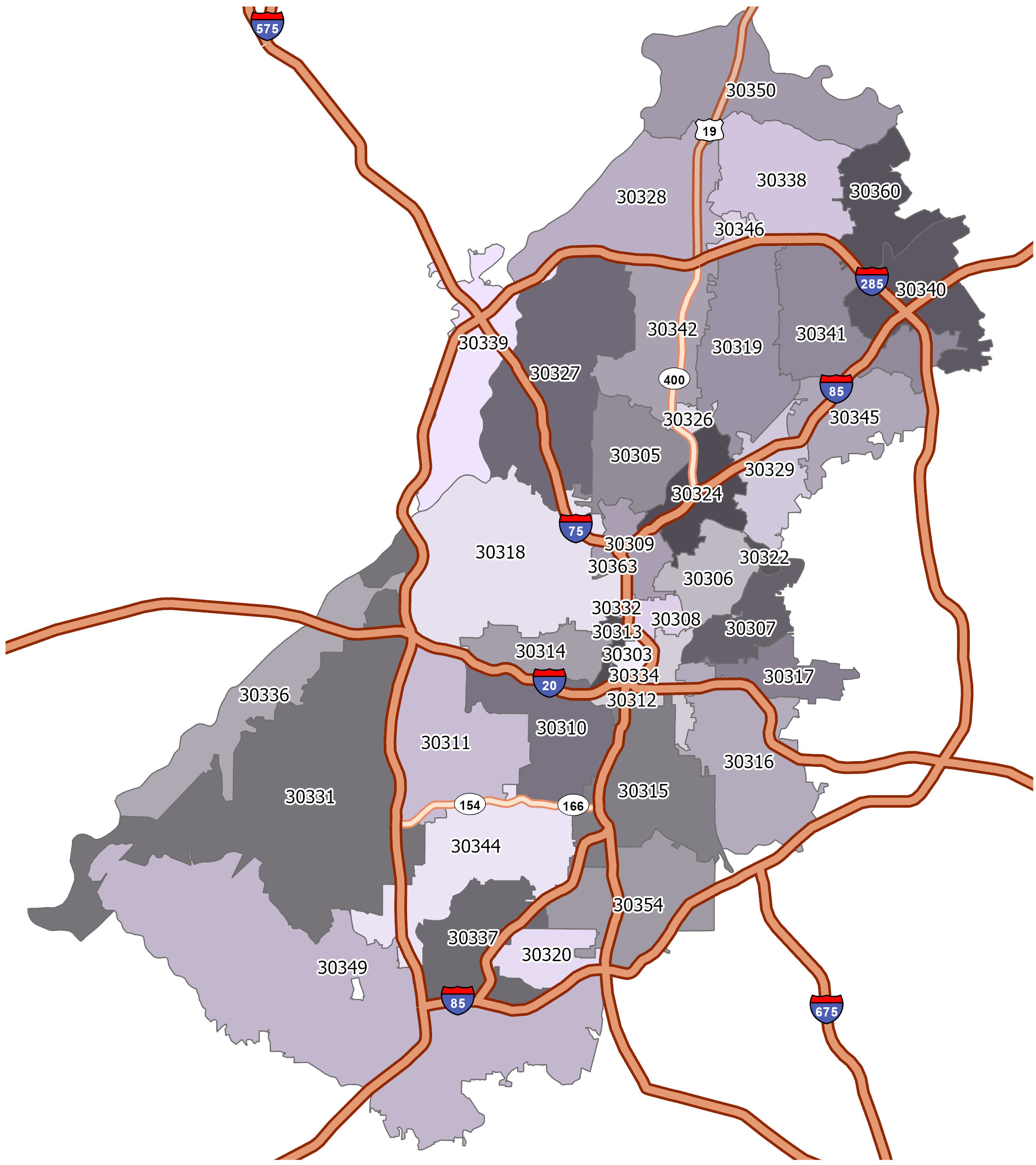
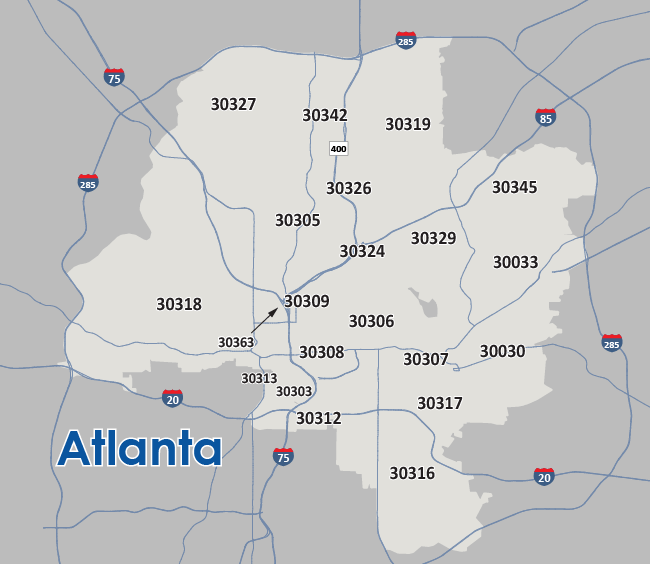
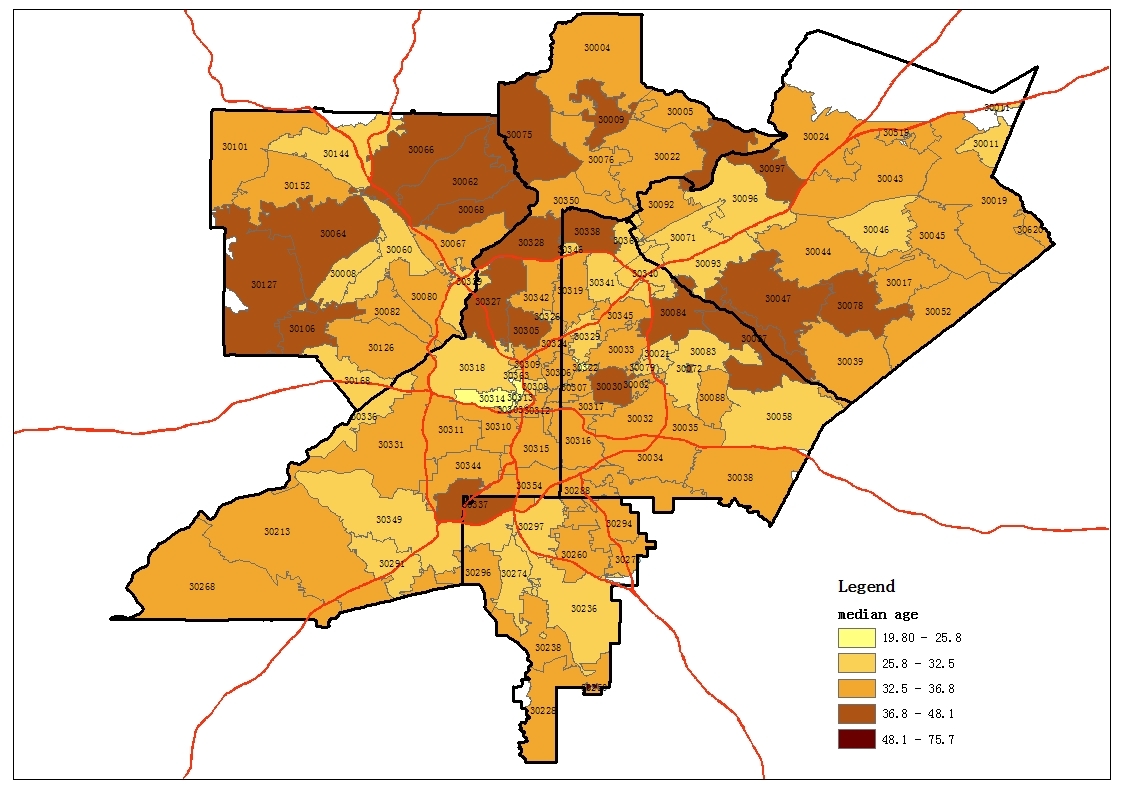


/cdn.vox-cdn.com/uploads/chorus_image/image/58372635/Screen_Shot_2018_01_18_at_1.59.48_PM.0.png)
Closure
Thus, we hope this article has provided valuable insights into Decoding Metro Atlanta: A Guide to Zip Codes and Their Significance. We thank you for taking the time to read this article. See you in our next article!
You may also like
Recent Posts
- Navigating The Future: A Deep Dive Into SAP’s Roadmap
- Vanguard: A Comprehensive Exploration Of The Map
- Navigating The African Continent: Understanding Longitude And Latitude
- Unpacking The Geography Of East Europe And Russia: A Comprehensive Guide
- Interstate 5: A Vital Artery Connecting The West Coast
- Navigating Paradise: A Comprehensive Guide To Sandals Resort Locations
- A Coastal Tapestry: Exploring Washington State’s Diverse Shoreline
- Navigating The Beauty Of Utah: A Comprehensive Guide To Printable Maps
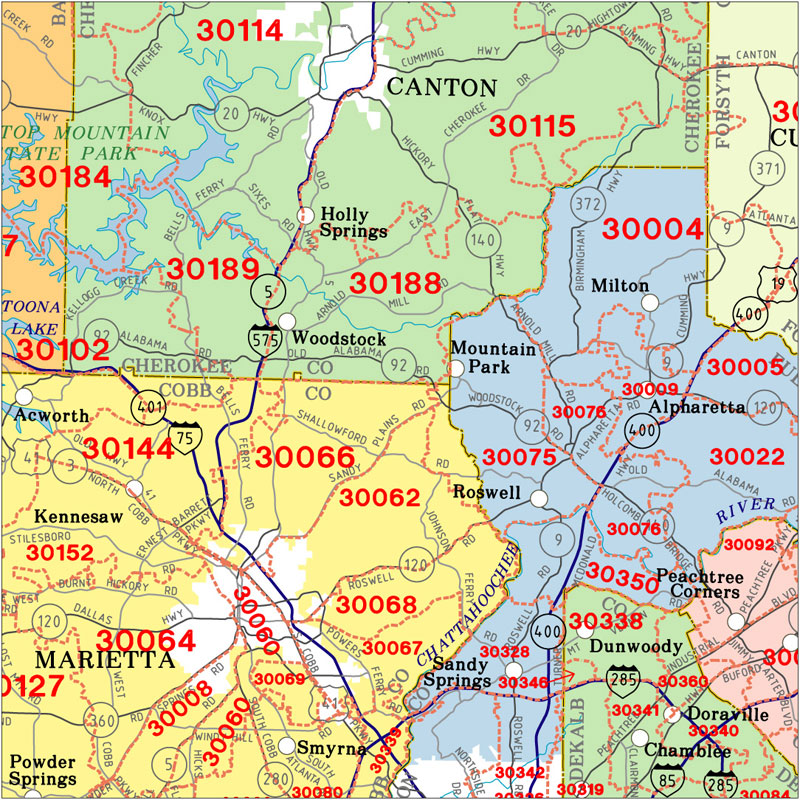
Leave a Reply